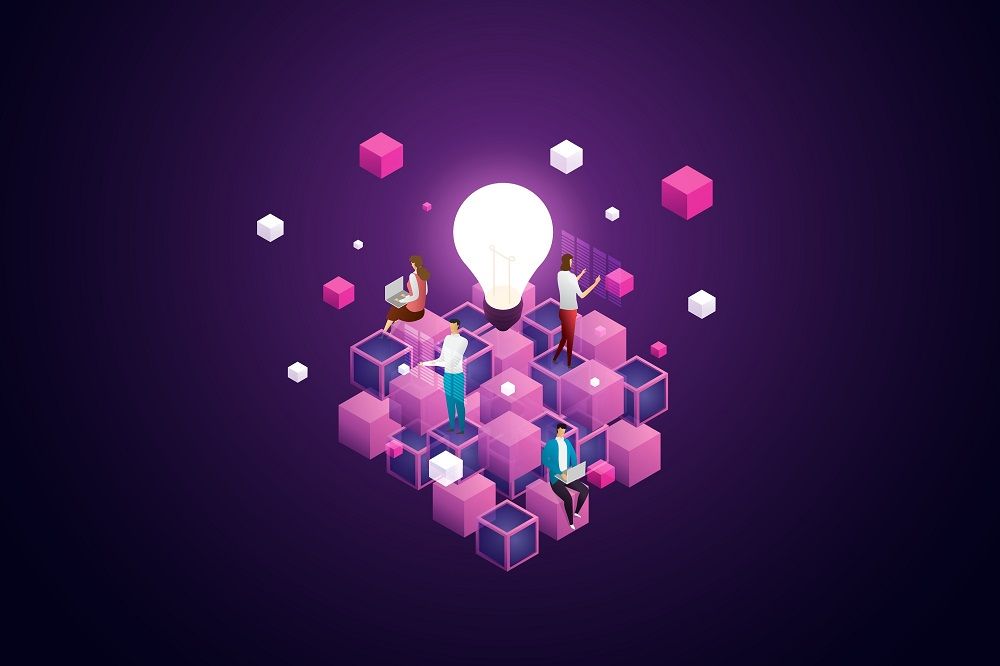Who is a Blockchain Engineer? Salary, Skills and Career

A career as a blockchain engineer is a lucrative one. Blockchain, also known as the backbone of digital cryptocurrencies, has generated tremendous hype in the few decades and is gradually taking over the market. There is a huge demand for a talented workforce in this domain.
But in order to pursue a career as a blockchain engineer, it would be wise to get answers to questions like:
- What are the roles and responsibilities of blockchain engineers?
- How much does a blockchain Engineer earn annually?
- And most importantly, what it takes to become a blockchain engineer?
Who is a Blockchain Engineer?
Blockchain engineers are the expert minds behind the evolution of computer networks, data structures, and algorithms in their companies. These professionals work on executing and creating a digital blockchain for business solutions.
In the blockchain domain, one can work as a blockchain developer, blockchain engineer, blockchain architect, or blockchain expert. However, blockchain developers and engineers hold an overall high demand across industries.
What Does a Blockchain Engineer do?
Most commonly, blockchain engineers work for technology and data service firms. Blockchain engineers’, roles and responsibilities can vary depending on the company. However, most of the essential responsibilities as per the market standards include:
- Searching for high-quality data for a blockchain project.
- Developing applications by employing blockchain technology.
- Defining the blockchain systems architectures using statistical data.
- Building back-end blockchain functionality to support mobile applications.
- Testing and troubleshooting errors in the blockchain project.
- Maintenance and modifying the back end and front end of an application.
- Writing and implementing code to meet application requirements.
- Being involved in the blockchain ecosystem development to integrate the latest changes.
- Collaborating with the data science, research, and production management team to evaluate blockchain applications.
- Participating in thorough research of the project.
- Preparing data for projects and training the team to create better solutions for the current blockchain technology.
- Evaluating any cybersecurity issues linked to the blockchain.
What Skills Does a Blockchain Engineer Need to Excel in the Role?
The fundamental technical and soft skills that every blockchain aspirant must have are:
Blockchain architecture
Blockchain engineers should have an exceptional understanding of blockchain architecture and its working. They should be familiar with terms like consensus, hash functions, etc.
Coding languages
A blockchain engineer should possess a strong hold on information technology and key programming languages used in blockchain projects. JavaScript, Python and Clojure are some of the key languages used to build most blockchain projects.
Data structures
Blockchain engineers continuously make a lot of changes to existing data structures to obtain desired one. Thus, they must have an in-depth understanding of data structures. Patricia Trees and Merkel Tree are some of the data structures typically used in blockchain technology.
Cryptography
A blockchain project revolves around codes, programming, and huge data. Hence, the security of a blockchain network is necessary, as a small error can cause the overall project to fail. The knowledge of cryptography helps blockchain engineers ensure data encryption without any loopholes.
Blockchain platforms
To create an effective and practical solution, a blockchain engineer must have a deep understanding of distinct types of platforms. Public, permission, private, permissionless, and federated are the different types of blockchain platforms.
Ecosystems
In addition to blockchain platforms, the knowledge of different standards or ecosystem work is essential for a blockchain engineer. Some examples of ecosystems are, Hyperledger, Ethereum, Corda, Quorum, etc.
Blockchain development tools
The understanding of different blockchain development tools (MetaMask, Remix, Truffle, etc.) acts as catalysts to create solutions at a faster rate.
Listed above are the technical skills. Here are the soft skills a blockchain engineer should possess:
- Excellent verbal and written communication skills to convey the requirements and understand the desired need of the project.
- Cooperative working skills to work with different team members.
- Strategic and critical thinking skills to create a strategy and effectively solve problems.
- Creative skills to look at every possible solution and find the best one.
- Agile to embrace a new strategy.
How Much Does a Blockchain Engineer Earn?
As read previously, blockchain developers and engineers are the popular blockchain profile. Not just popular, but both profiles have some common roles as well. That is why many a time people interchange their roles.
Blockchain developers make decisions based on their work. On the other hand, blockchain engineers predict the structure of the infrastructure. Both profiles come under the software development umbrella and share a comparable salary. In this section, the salary of a blockchain developer is discussed.
The salary of a blockchain developer in India ranges between ₹ 3-4 Lakhs and goes up to ₹ 15-20 Lakhs [Source]. The annual average salary is between ₹ 6-8 Lakhs [Source].
What Does it Take to Become a Blockchain Engineer?
Getting through the doors of becoming a blockchain engineer, a college degree in information technology, computer science, or a related field can be advantageous. However, most recruiters nowadays emphasise elements like understanding programming skills.
One other way to enhance your skills is to get hands-on with an actual blockchain application. You can do this by enrolling on an in-person or online IT course. The course will enable you successfully build applications using blockchain technology.
Now, what if the course benefits you with alumina status from IIM and ISB? Emeritus India, in collaboration with these well-known universities, offers a range of blockchain and related technologies programmes. The program will help build insight into blockchain technology and grasp its evolving part in shaping companies.






